Painless Hip Replacement
What is Hip Replacement Surgery?
A surgeon removes the damaged portions of your hip joint and replaces them with metal, ceramic, or very durable plastic elements during hip replacement. This prosthetic joint (prosthesis) relieves pain and improves function. Dr Abhijit S. Agashe is a well-known and experienced orthopaedic surgeon who provides Hip Replacement Treatment in Pune.
If your hip pain is interfering with your daily activities and nonsurgical therapies haven’t helped or are no longer effective, hip replacement surgery, also known as total hip arthroplasty, may be an option for you. Arthritis deterioration is the most common reason for hip replacement.
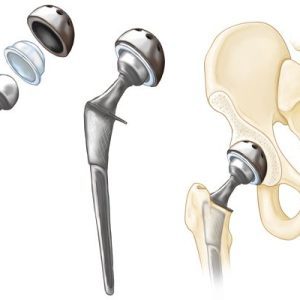
Why is it done this way?
Some of the diseases that might cause damage to the hip joint and need hip replacement surgery include:
Osteoarthritis. Osteoarthritis, commonly known as wear-and-tear arthritis, damages the slippery cartilage that covers the ends of bones and allows joints to move freely.
The autoimmune illness rheumatoid arthritis damages the joints. Rheumatoid arthritis is an inflammatory disease characterized by an overactive immune system that causes cartilage and, in rare cases, underlying bone to disintegrate, resulting in damaged and deformed joints.
Osteonecrosis. If there isn’t enough blood flow to the ball portion of the hip joint, which might happen as a result of a dislocation or fracture, the bone may collapse and deform.
You may wish to consider hip replacement if you have hip discomfort caused by one of the following reasons.
- It continues despite pain medication.
- Walking, even with a cane or walker, adds to the problem.
- It makes getting dressed difficult and disturbs your sleep.
- It makes it difficult to move out of a seated posture.
- It affects your ability to ascend or descend stairs.
What are the Risks of Hip Replacement Surgery?
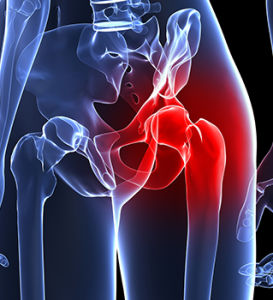
- Blood clots are a common occurrence. Clots in your leg veins might develop after surgery. This can be hazardous because a part of a clot can break off and go to your lung, heart, or, in rare circumstances, your brain. Your doctor may give blood thinners to reduce this risk.
- Infections might develop around your replacement hip as well as where your incision is made. Most infections may be treated with antibiotics, but a significant infection near your prosthesis may require surgery to remove and replace it.
- In some postures, the ball of your replacement joint may come out of the socket, especially in the first few months following surgery. If your hip dislocates, your doctor may recommend wearing a brace to keep it in place. If your hip continues to dislocate, surgery to stabilize it may be required.
- Leg length fluctuates. Despite your surgeon’s best efforts, it’s possible that a new hip will result in one leg being longer or shorter than the other. A contracture of the muscles around the hip can occasionally produce this. Strengthening and extending specific muscles over time may be useful in this circumstance. Small variations in leg length appear after a few months.
- During surgery, healthy portions of your hip joint may fracture. Smaller fractures may heal on their own, but larger fractures may need to be repaired using wires, screws, a metal plate, or bone transplants.
- Your replacement joint may not be properly connected to your bone or may loosen over time, causing hip discomfort, even though this is an uncommon complication with modern implants. It’s possible that surgery will be necessary to remedy the problem.
- Nerve damage is a serious problem. Nerves in the region where the implant is put may be injured in rare cases. Nerve damage can cause numbness, weakness, and pain.
How do you prepare for Hip Replacement Surgery?
You’ll get an examination with your orthopaedic surgeon before surgery. The surgeon will do the following:
- Inquire about your medical history as well as the medicines you’re taking right now.
- Examine your hip, paying specific attention to the range of motion of the joint and the strength of the muscles around it.
- Schedule a blood test and X-ray appointment. An MRI is only utilized in rare circumstances.
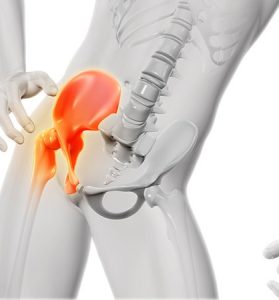
During the preoperative assessment, this is an excellent time for you to ask questions about the procedure. In the week coming up to surgery, find out which medications you should discontinue or continue taking.
Tobacco use should be avoided for at least a month before surgery and for at least two months thereafter since it can obstruct recovery.
Two weeks before surgery, avoid all dental operations, including tooth cleaning.
During The Procedure
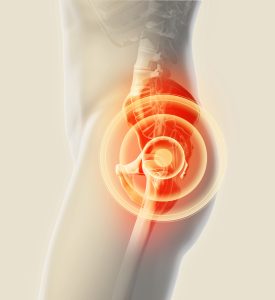
It takes a few hours to finish the procedure. To do a hip replacement, your surgeon will need to accomplish the following:
- Makes an incision on the front or side of your hip, cutting through the layers of tissue.
- Diseased and damaged bone and cartilage are removed while the good bone is preserved.
- A prosthetic socket is inserted into your pelvic bone to replace the damaged socket.
- The prosthetic ball is attached to a stem that fits into your thighbone and replaces your femur’s spherical ball.
Techniques for hip replacement are evolving all the time. Surgeons are working to develop less invasive surgical methods that might shorten recovery time and allow patients to return to work sooner.
After the Procedure
When your anaesthesia wears off, you’ll be moved to a recovery area for a few hours following surgery. Medical professionals will monitor your blood pressure, pulse, consciousness, pain or comfort level, and medication needed.
The length of your stay following surgery is dictated by your individual needs. A large number of people are able to return home the same day. You’ll be told to take deep breaths, cough, or blow into a gadget to assist keep fluid out of your lungs.
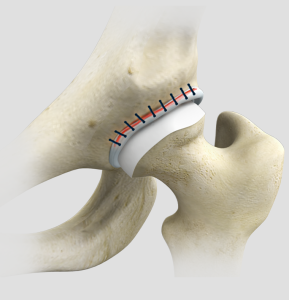
Why Choose Dr. Abhijit S. Agashe ?
Dr Abhijit S. Agashe is the Best Knee Replacement Surgeon in Pune who performs the surgery using all the advanced technology which gives the best result. He is the most experienced orthopedic surgeon in Pune
Agashe Clinic
- Research Award by Bone and Joint Decade – 2004
- Esteemed Fellowship Offered By The AO Group From Switzerland – 2008
- Fellowship With Prof. Willium Peterson From Germany In Sports Medicine – 2007
Address
- Office no 206, Siddharth Towers Building no 1 Near Karishma society, Kothrud, Pune, Maharashtra 411029
- 086006 53737
- puneortho@gmail.com




